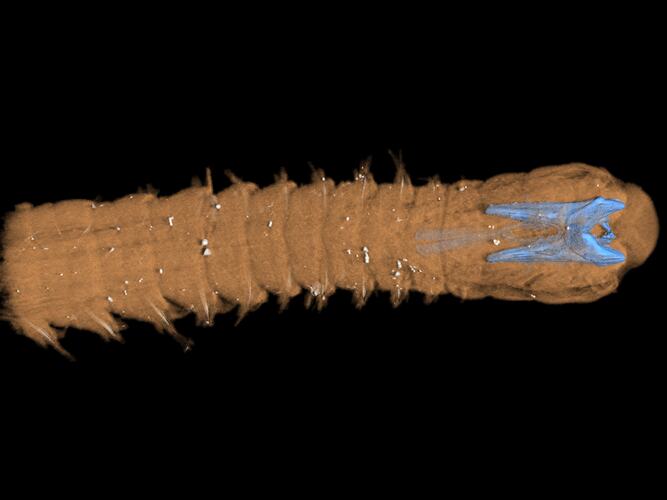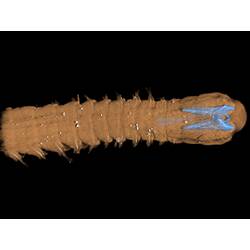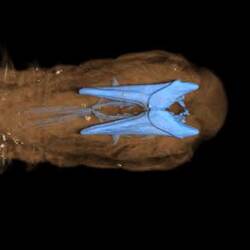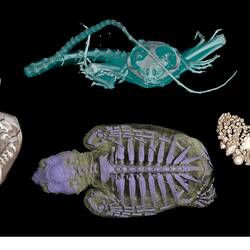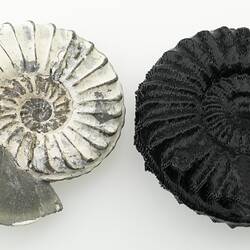Summary
This marine worm is from a family of segmented worms called Hartmaniellidae. Unlike most worms, these have hard jaws which can be seen in blue in the images here. As they have hard parts this family has left a fossil record which dates back to at least the Triassic (about 200-250 million years ago). They are much less common today than they were hundreds of millions of years ago. Despite the huge number of marine surveys taken world-wide in the past hundred years or more, only 3 living species and a few dozen specimens are known, occurring in scattered populations such as the Gulf of Mexico and seas around Thailand and Japan. Recent explorations in Australian waters have recently discovered just 2 more specimens, one from the Arafura Sea and this from the Great Australian Bight.
These worms are so uncommon that researchers don't want to risk damaging specimens by dissections to reveal the hidden jaws. MicroCT scans allow the shape of the jaws to be precisely revealed and also showing their articulation. Researchers can use this information to begin to answer some of the questions that interest us: How similar are these specimens to the fossil species? Do the specimens from Australia represent new species in this family? Is there some aspect of the jaw design in these worms that might explain why they are now rare while other kinds of worms with jaws of different design have become very common?
Specimen Details
-
Taxon Name
-
Preferred Common name
Worm
-
Date Identified
2010
-
Identified By
Robin S Wilson
-
Number Of Specimens
1
-
Sex
Unknown
-
Specimen Nature
Form: Wet
-
Collected By
D Currie - Marine and Freshwater Research Institute (MAFRI), Victoria
-
Collection Event Code
SARDI-GAB-2006 42
-
Sampling Method
Smith-McIntyre grab
-
Date Visited From
19/10/2006
-
Date Visited To
19/10/2006
-
Depth To (m)
156
-
Depth From (m)
156
-
Category
-
Scientific Group
-
Discipline
-
Collecting Areas
-
Type of Item
Taxonomy
-
Phylum
-
Class
-
Subclass
-
Order
-
Family
-
Genus
Geospatial Information
-
Country
-
State
-
Precise Location
eastern Great Australian Bight
-
Latitude
-33.2924
-
Longitude
130.561
-
Geodetic Datum
WGS84
